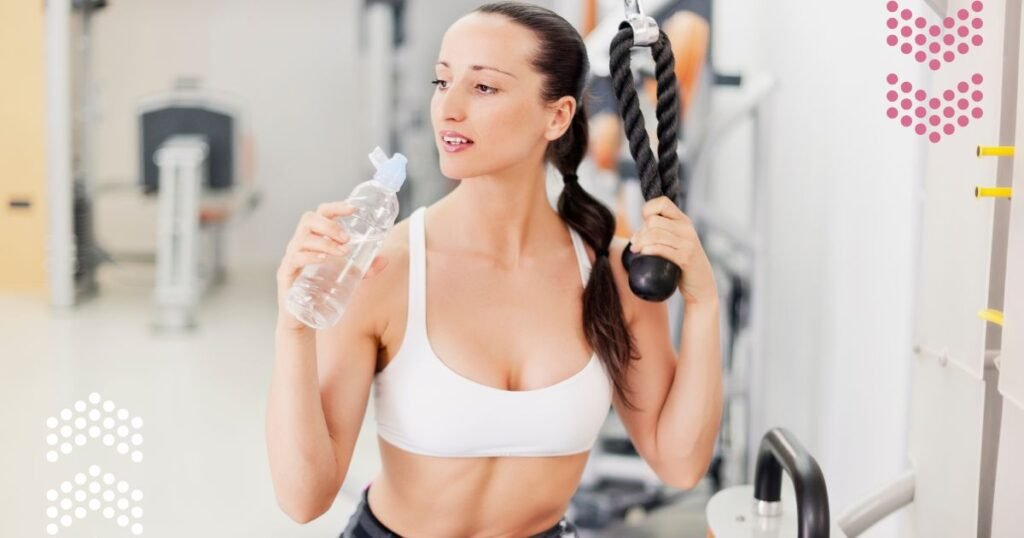What should be the daily water intake for a woman?
Women’s bodies are unique, requiring special attention when it comes to maintaining proper hydration. Adequate water intake plays a crucial role in overall health and wellness, from digestion and metabolism to joint health and energy levels. As women, it’s important to understand that our hydration needs vary based on our age, activity level, and even the weather conditions we live in.
At ShapioX, we recognize the importance of educating women on the role hydration plays in maintaining a healthy lifestyle. While we offer various resources related to weight loss, nutrition, and fitness, understanding the basics of hydration is fundamental for every woman striving to improve her health. Whether you are looking to lose weight, stay fit, or simply feel better, ensuring you’re drinking enough water is a key step.
What is the water in our body for?
Water is often referred to as the essence of life, and for good reason. Nearly every system in our body relies on water to function. In women, water helps regulate everything from body temperature to digestion. It supports the circulatory system by maintaining the volume of blood and lymph, ensuring that nutrients reach all parts of the body. Water also keeps tissues like your skin and joints hydrated, playing a critical role in maintaining a youthful appearance and smooth movement.
Hydration is particularly important for women as it helps in flushing out toxins and waste products from the body. Every day, your body eliminates waste products through sweat, urine, and digestion, and all of these processes require adequate water intake. As a woman, neglecting hydration can lead to numerous health issues such as poor digestion, dry skin, and even chronic fatigue.
Moreover, during stages of life like pregnancy or menopause, water helps in regulating hormones and reduces common discomforts like bloating or dry skin. For pregnant women, staying hydrated is essential for both the health of the mother and the development of the baby.
How much water should I drink per day?
There’s no one-size-fits-all answer to how much water a woman should drink. While the common recommendation is to consume around 8 glasses of water per day (approximately 2 liters), your specific needs may vary. This depends on several factors including your weight, activity level, and even the climate you live in.
For example, if you live in a hot climate or exercise frequently, your body may require more water to compensate for what is lost through sweating. Women who are more active or engage in regular physical activity should aim to drink even more water to stay properly hydrated. During physical activity, the body can lose 1-2 liters of water per hour, so replenishing that is critical for maintaining performance and recovery.
Another key factor to consider is age. As women get older, their body’s water retention ability decreases, which makes staying hydrated even more important. Elderly women should be particularly mindful of their water intake, as dehydration can lead to dizziness, confusion, and even hospitalizations.
If you’re unsure how much water you need, you can use our Water Intake Calculator to get a personalized recommendation based on your weight, age, and activity level.
How does the body lose its daily liters of water?
Our bodies naturally lose water every day through a variety of processes. For women, understanding how water is lost can help to better manage hydration. On average, a woman will lose between 2.5 and 3 liters of water daily. These losses primarily occur through urination, but they also happen through sweat, stool, and even breathing.
For example, when you exhale, you are expelling water vapor, contributing to the body’s natural water loss. If you’re physically active, sweat becomes the main way that your body releases water. This is why it’s especially important for women who exercise regularly to stay hydrated, as they can lose up to 1-2 liters of water per hour depending on the intensity of the workout.
In addition to physical activity, the environment plays a role in how much water we lose. Hot climates, as well as dry indoor environments, can increase water loss through sweat and the respiratory system. This means that women living in warmer regions or working in dry conditions should be extra vigilant about their hydration levels.

What is good hydration?
Good hydration goes beyond simply drinking water. It’s about finding the right balance between water intake and water loss, ensuring that your body has what it needs to function optimally. Drinking too much water at once isn’t helpful because the body can only process so much at a time. Instead, it’s best to spread your water consumption throughout the day.
To help meet your hydration needs, try to incorporate water-rich foods into your diet. Foods like cucumbers, watermelons, oranges, and leafy greens contain high levels of water and can supplement your daily intake. On average, foods provide around 20-30% of your daily hydration needs.
Additionally, remember that beverages like herbal teas and even coffee contribute to your hydration, though it’s important not to rely too heavily on caffeinated beverages as they can have a mild diuretic effect.
How to stay hydrated throughout the day?
The key to staying hydrated is consistency. Drinking small amounts of water throughout the day is much more effective than trying to catch up by drinking large amounts all at once. As a woman, you can start your day with a glass of water or a hydrating beverage like herbal tea.
One useful tip is to keep a water bottle with you at all times, whether you’re at work, running errands, or exercising. Having easy access to water will encourage you to drink more frequently. Aim for around 8 glasses spread throughout the day, and adjust based on your activity level.
For active women, it’s a good idea to drink water before, during, and after exercise. If you’re engaging in strenuous activity for over an hour, consider hydrating with drinks that contain electrolytes to replenish lost minerals like sodium and potassium.
Should we trust the sensation of thirst to drink?
Many women wait until they feel thirsty to drink water, but this is not always the best approach. Thirst is a delayed response, and by the time you feel it, you’re already mildly dehydrated. This is why it’s important to develop a habit of drinking water regularly throughout the day, even if you don’t feel thirsty.
In particular, women who are busy with work or family may not notice their thirst until they become significantly dehydrated. That’s why keeping a water bottle within arm’s reach can serve as a helpful reminder to stay hydrated.
What are the signs of dehydration?
Dehydration can sneak up on you, especially if you’re not mindful of your water intake. Thirst is usually the first sign, but it’s not the only one. Other symptoms of dehydration include dry mouth, fatigue, dizziness, and headaches. If dehydration becomes more severe, you may notice dark urine, a drop in energy levels, or even confusion.
For women, especially those going through life changes like menopause or pregnancy, hydration is even more important. Dehydration can worsen symptoms like headaches, bloating, and fatigue. Additionally, as we age, our sense of thirst diminishes, making it easier to become dehydrated without realizing it.
Can we drink “too much”?
While it’s important to drink enough water, it is also possible to drink too much. Overhydration, or water intoxication, can occur when you drink excessive amounts of water in a short period of time. This dilutes the sodium levels in your blood, leading to a condition called hyponatremia, which can be dangerous.
However, overhydration is rare and usually only occurs in extreme circumstances, such as endurance sports where athletes consume too much water without replenishing electrolytes. If you are ever unsure, listen to your body and consult with a healthcare provider if you’re experiencing excessive thirst alongside other symptoms like frequent urination or unexplained fatigue. More on hydration and its impacts on health can be found here.
At ShapioX, we encourage all women to take control of their health and wellness journey, and hydration is a key part of that. Explore our website for more resources and tools designed to help you maintain a healthy lifestyle. From personalized water calculators to fitness plans and healthy recipes, we’re here to support you in achieving your health goals. Take the first step today by browsing our range of helpful resources!



